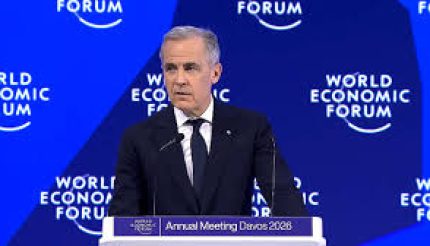What are the Key Differences Between Business Coaching and Business Consulting?
Often, when I speak to a business owner to establish whether business coaching would be useful to them and their business, I am asked whether coaching is just a new word for consulting. So, I decided to highlight the key differences between these two services from my perspective of having been an Action Coach business coach for 15 years.
In the dynamic world of business, entrepreneurs and executives often seek professional assistance to enhance their performance and to drive growth. Two prominent approaches commonly used are business coaching and business consulting. While these terms are often used interchangeably, they represent distinct methodologies with unique goals, processes, and outcomes. I explore the key differences between business coaching and business consulting, here, shedding light on their respective focuses, methods, and impacts.
1. Focus: Business Coaching primarily centres around personal and professional development. As an Action Coach I work with business owners and their senior teams to identify goals, build self-awareness, enhance leadership skills, and foster personal growth. The focus is on unlocking potential, improving performance, and achieving desired outcomes.
As we say in Action Coach – we improve the client so that they can improve their business and their business results.
Business Consulting on the other hand, is geared towards addressing specific business challenges and achieving tangible results. Consultants provide expert advice and strategic guidance to help organisations solve specific problems. The focus is on delivering concrete solutions and driving measurable business improvements. This often results in a report being delivered at the end of the engagement highlighting what has been achieved. It is very much focussed on solutions now.
2. Role of the Coach: In business coaching, the coach assumes the role of a facilitator and guide. They create a supportive environment and employ various techniques to help clients gain insights, discover solutions, and develop new perspectives. Coaches utilise effective questioning, active listening, and feedback to encourage self-reflection and stimulate personal growth. They help individuals identify their strengths, weaknesses, and blind spots, empowering them to make informed decisions and drive their own progress. The coaches’ subject matter is based on generalised principles and understanding of business. A coach knows when they are being useful when they see the client think differently and use their knowledge of their business to find a new solution or opportunity.
Role of the Consultant: In contrast, business consultants act as subject matter experts with specialised knowledge and experience in a particular industry or functional area. They provide objective analysis, offer expert advice, and recommend best practices to address specific business challenges. Consultants leverage their expertise to identify opportunities, diagnose problems, and propose strategic interventions. Their role is to deliver expert insights, devise tailored strategies, and implement solutions effectively.
3. Approach and Methodology of the Coach: The coaching process is typically focused on empowering clients to discover their own answers and solutions. Coaches employ a collaborative and client-centred approach, encouraging self-reflection, introspection, and goal setting. They use various tools and techniques such as powerful questioning, brainstorming, and accountability to stimulate personal growth and maximize potential. Coaching engagements are often long-term relationships that involve ongoing support, regular feedback, and goal tracking. My favourite definition of business coaching is that it is a blend of education and accountability.
Approach and methodology of the Consultant: Consulting engagements are generally project-based and time-bound. Consultants employ a structured and analytical approach to diagnose organisational challenges and develop tailored solutions. They conduct thorough research, gather data, and perform detailed analyses to make informed recommendations. Consultants often collaborate closely with stakeholders, conduct interviews, and facilitate workshops to gather insights and align the business around proposed changes. The consulting process is results-oriented, aiming to deliver tangible outcomes within defined timelines.
4. Outcome and Focus on Sustainability of the Coach: The primary outcome of business coaching is personal and professional development. Coaches help individuals unlock their potential, enhance their skills, and achieve their goals. The focus is on long-term growth, building capabilities, and fostering resilience. Business coaching aims to create sustainable change by developing self-reliance and empowering clients to navigate future challenges independently. To use an analogy, a coach teaches a person to fish.
Outcome and Focus on Sustainability of the Consultant: Business consulting focuses on achieving specific business objectives and solving immediate challenges. Consultants aim to deliver measurable improvements in efficiency, profitability, or market position. The emphasis is on short-term results and resolving specific issues within the business. While consultants often provide guidance on implementation, their primary objective is to equip the business with the necessary tools and strategies to continue driving sustainable change even after the engagement concludes. To end the analogy above, a consultant provides a fish.
In summary, business coaching and business consulting are distinct approaches with different goals, methodologies, and outcomes. Business coaching focuses on personal and professional development, leveraging coaching techniques to enhance self-awareness, leadership skills, and performance with the long term business result improvement occurring through more effective performance of the leader and their team. Consultancy, in contrast provides a short term business outcome and leaves the long term benefit to be achieved by the team after they move on.
If reading this article has made you think that the business coaching journey may be of benefit to you and your business, please e-mail me on rogerpemberton@actioncoach.com or call on 07511969690 to arrange a complimentary coaching session that is guaranteed to help you look at your business differently.






